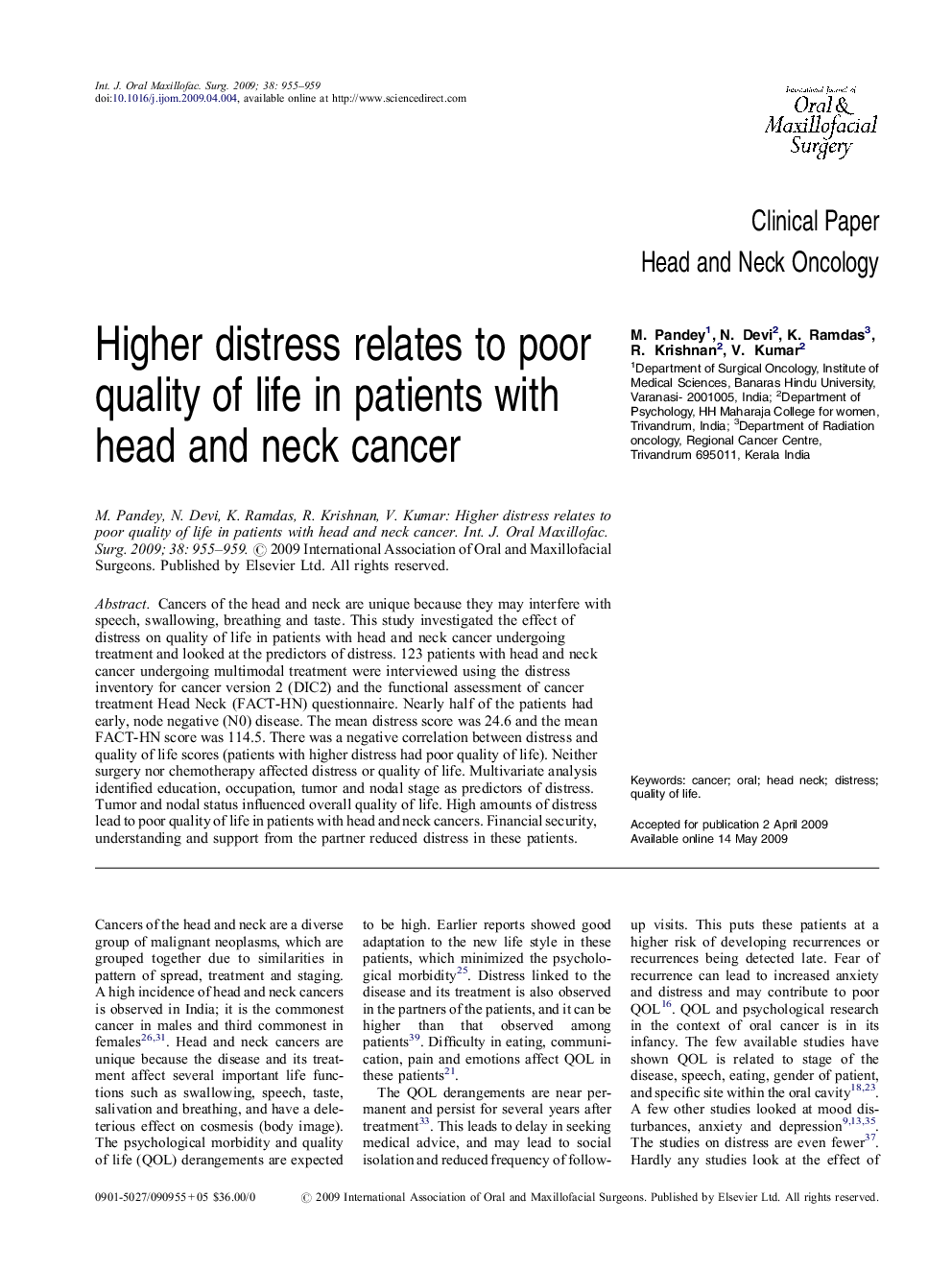| Article ID | Journal | Published Year | Pages | File Type |
|---|---|---|---|---|
| 3134263 | International Journal of Oral and Maxillofacial Surgery | 2009 | 5 Pages |
Cancers of the head and neck are unique because they may interfere with speech, swallowing, breathing and taste. This study investigated the effect of distress on quality of life in patients with head and neck cancer undergoing treatment and looked at the predictors of distress. 123 patients with head and neck cancer undergoing multimodal treatment were interviewed using the distress inventory for cancer version 2 (DIC2) and the functional assessment of cancer treatment Head Neck (FACT-HN) questionnaire. Nearly half of the patients had early, node negative (N0) disease. The mean distress score was 24.6 and the mean FACT-HN score was 114.5. There was a negative correlation between distress and quality of life scores (patients with higher distress had poor quality of life). Neither surgery nor chemotherapy affected distress or quality of life. Multivariate analysis identified education, occupation, tumor and nodal stage as predictors of distress. Tumor and nodal status influenced overall quality of life. High amounts of distress lead to poor quality of life in patients with head and neck cancers. Financial security, understanding and support from the partner reduced distress in these patients.
